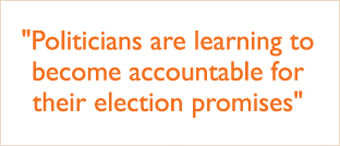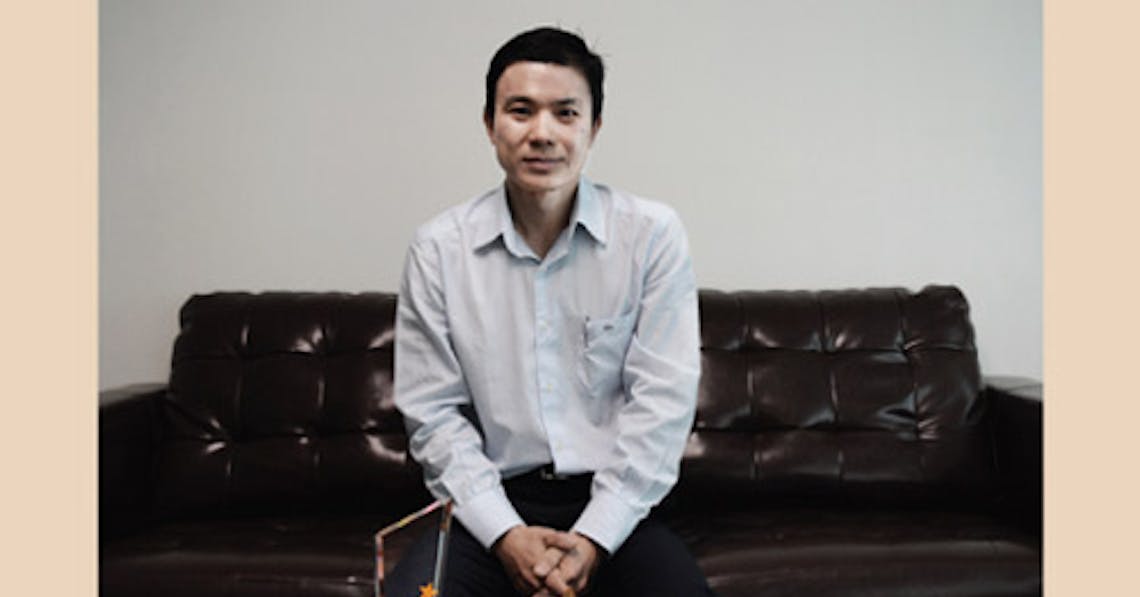Tassanai Buranupakorn, 39, was reelected as mayor of Chiang Mai for another four year term on the 3rd November 2013, after resigning eight weeks prior to the end of his first term to mourn the death of his uncle, Member of Parliament Pakorn Buranupakorn.
The Buranupakorn family are heavily involved at major levels of public office in Chiang Mai. Uncle Pakorn was mayor in the late 90s before becoming MP; his other uncle Boonlert Buranupakorn was mayor between 2000 – 2007 and currently sits as Chair of the Provincial Administration Organisation; Tassani Buranupakorn, Mayor Tassanai’s sister, acts as a member of parliament and Wilai Buranupakorn, Boonlert’s wife, is chair and in charge of Chiang Mai’s hundred million plus baht Thailand’s Women Empowerment Fund.
With the city growing at a breathtaking speed and all the social, economical and infrastructural issues that comes along with it, Citylife talked with the mayor to find out what plans he has for Chiang Mai’s future now that he has four more years in office.
Citylife: What is your biggest concern when it comes to stepping back for another term in office?
Mayor: Standards of politicians. I think that it is clear now that people are no longer willing to accept politicians at their words. Politicians are learning to become accountable for their election promises and I hope that every elected person takes this seriously. At the end of the day our careers rely on the trust we engender with the public. If I make false promises, then my career is finished. I am determined to not only complete any lingering election promises made on my first election over four years ago, but also to keep all new ones made this time around.
Citylife: But how are we to make politicians accountable? What systems need to be put in place?
Mayor: That is not my job; it is yours. The people have the power.
Citylife: What were your main pledges made for this term?
Mayor: Firstly I wish to install CCTVs throughout the municipality. It has been proven that up to 70 percent of crime is reduced due to the presence of CCTVs. This budget will be coming from our own coffers and we will not be able to cover the entire municipality area in my term, but I am going to make a start. We will begin with the old moated city.
Citylife: Are you anticipating a backlash over encroachment on personal freedom? Playing Big Brother?
Mayor: It is a choice we have to make, safety or privacy. The fact is that we are now a large city. People are coming to live here from all over the world. Society changes, people change and we need to ensure the smooth enforcement of law and order.
I also pledged to offer preventive health checkups for those who do not have coverage. It is good that people now have excellent medical coverage when they are ill; would it not be better if they didn’t get ill in the first place? The 30 baht medical scheme does not cover this and the municipality will.
Citylife: One of the election pledges of your first term was to improve city parks such as the Railway Station Park, which frankly is a huge mess. What happened?
Mayor: Unfortunately the State Railway of Thailand has reclaimed the land so we are unable to spend any more money developing it. I am not entirely sure what they wish to do and our lease with them is expired. I can’t comment on their plans.
Citylife: Everyone is complaining about the traffic. What are you going to do to alleviate it?
Mayor: Honestly, the people who complain – you and I – are the ones causing the problems. The people who are walking and cycling, they don’t have a problem. There is so much that people complain about, yet they are unwilling to make sacrifices to achieve their claimed desires. If we want to solve traffic problems then you and I are going to be inconvenienced, let me ask you, is that okay with everyone? I don’t think so, because even with small issues which we try to solve, they get blocked because when it comes to having to make personal sacrifices, people balk.

Citylife: Can you please be more specific?
Mayor: Okay, Nimmanhaemin Road: efforts were made to try to make it and its offshoot lanes one way traffic and to control parking, but many residents complained that it was difficult for them. Go and ask your group, the Rak Nimman Club. I am also trying to clear the riverbanks so that we can create long-term flood prevention measures, but when asked to sacrifice their decks and verandahs businesses won’t do it, even though they are the first to get devastated by floods. We have tried to plant Chiang Mai’s symbolic tree, the Flame of the Forest, along city roads, but businesses with awnings don’t cooperate. Clearing footpaths is all great too until someone refuses to remove their potted plant, their sign, their tables. The list goes on. I am unable to forcibly remove these impediments, or I can actually be prosecuted. I must use the law…and the law takes a very long time. In most cases, many years.
Citylife: So, how can you be effective?
Mayor: I can do what I have the power to do. CCTV is something I can do. We can use it to control parking. People who are lazy and park illegally will simply be caught on camera and hopefully their habits will change. Slowly this will bring some order to society.
No one wants traffic; but everyone wants convenience. One is going to have to be sacrificed for the other.
Citylife: I know I have asked this of every mayor since I interviewed your now deceased uncle, then-mayor Pakorn Buranupakorn, in 2001, then multiple times with your other uncle, then-mayor Boonlert Buranupakorn, with no positive response, but is there any hope for public transportation here?
Mayor: When 90 percent of local taxes goes to the central government, and about another 30 percent of what remains goes towards administrative costs – garbage collection, personnel, etc. – projects which require vast sums of money such as this need government backing. Everything on such large infrastructural scales is controlled by Bangkok; there is no decentralisation. So, at this point, no.
Citylife: Have the demographics changed for the municipal area with the rapid expansion of Chiang Mai?
Mayor: Interestingly, our registered residents have slightly shrunken; many have sold their lands and moved to the suburbs! There are now 140,000 registered residents in the 40 square kilometre municipality area [10,000 less than ten years ago]. People who live in neighbouring districts and who come to work here daily, as well as non-registered residents, probably brings the number to around 300,000 – 500,000 daily. We know this from our garbage intake. The average person throws away 0.8 to one kilogram of garbage per day.
Citylife: What are you doing to retain the old Chiang Mai charm amidst such growth?
Mayor: We control what we can, for instance in the old city we control architecture, colours and heights of buildings, and we try to keep the old city as traditional as possible. What I can’t control are the areas outside the municipality. One general zoning law governs the entire country which doesn’t make sense at all when each province and city has its own unique quality. Pattani and Chiang Mai are different and should not be subject to the same sweeping laws. I believe in decentralisation. There are so many jurisdictions which are governed by Bangkok appointees.
Nimmanhaemin Road, for instance, is under the control of the Highway Department. I am elected, so my job is to please the people. You want an interview with me, I always give it; after all, you elected me…or maybe not. Someone moving up the bureaucratic ladder appointed to Chiang Mai doesn’t care the way elected officials do, not only because they are not local, but because their careers are not dependent on the needs of the people they are supposed to serve. For instance, I want to do zoning to clear some areas of too many bar girls, but we are not the ones who issue the alcohol permits. There are too many outside agencies at work for our own work to be as effective as I would like.
Citylife: What can you do?
Mayor: I can create green spaces for our residents. The Kanchanaphisek Park on the corner of the moat near Suan Prung is now open and is green, clean, safe and has bathrooms. Unfortunately the orange vendors refuse to move, so I am still not sure what we can do about them. We have improved the 100 rai Rama 9th Park too, adding a fusal court and running tracks. If we can encourage more people to use it, then we can add features such as libraries, night lights for nighttime usage and all sorts of other activities. We received 20 million baht from the World Bank to improve the Three Kings Monument area, some of the money has gone into a feasibility study and the rest will be used to encourage cycling and walking and to attract tourism. I have already opened new museums there in the past two years, though unfortunately the old women’s prison is not under my jurisdiction so that cannot be incorporated into our plan. Our garbage collection system is being greatly improved with the city’s 300 tonnes of garbage being collected daily and we are focusing on schools to help educate recycling. [Ed. Stay tuned. Citylife will take a deeper look at this in a future issue.]
Citylife: You are obviously a huge proponent of decentralisation. Do you really think it will make a difference?
Mayor: The first prime minister in my childhood memory was General Prem [Tinsulanonda] who was never elected. That was 30 years ago. Now, with our current political crisis, we may be heading back to non-elected governance. I believe in the opposite. The chief of police for our region should be from our region, not sent from somewhere else. The governor should be elected and his actions accountable to the people of Chiang Mai, not Bangkok, and all the power needs to be given to the people. We would get so much more done if we had more local power. I work for you, I answer to you, that is how it should be.
